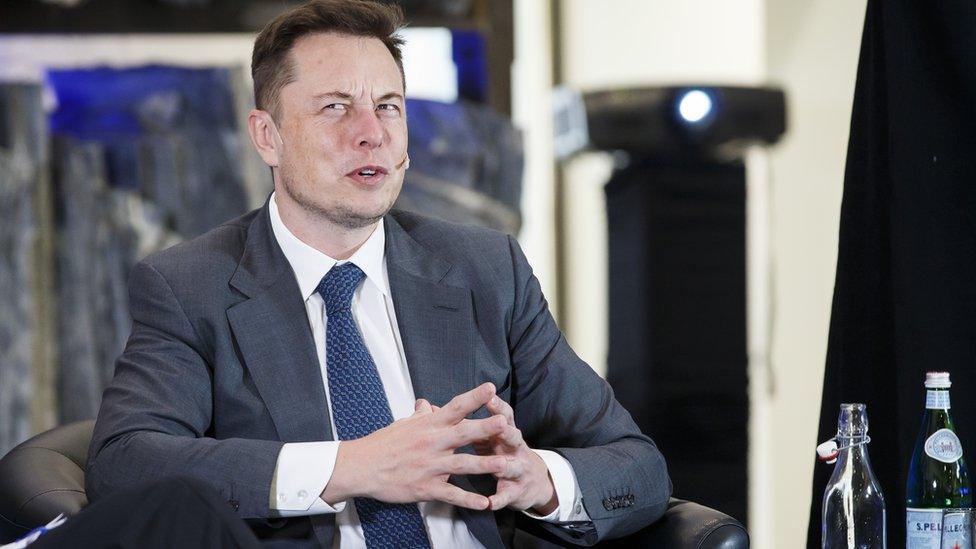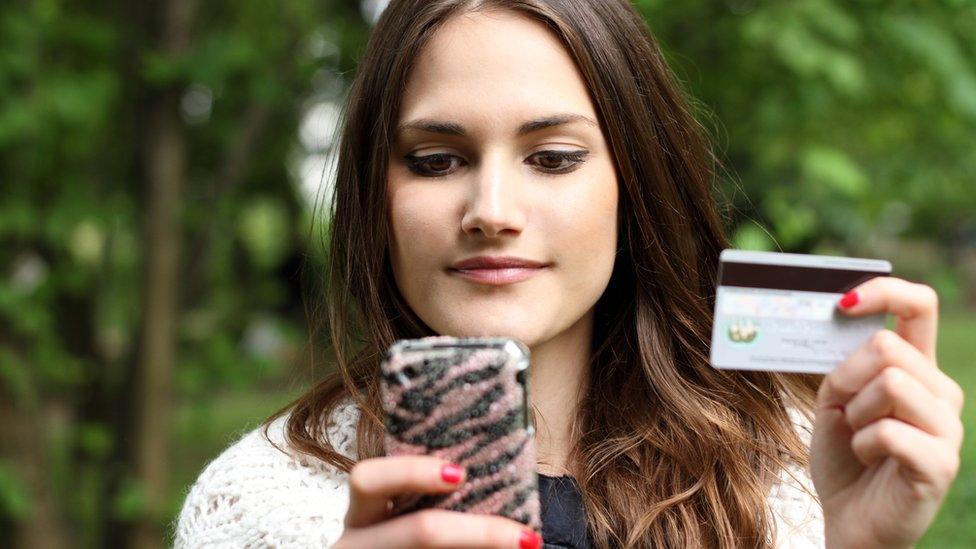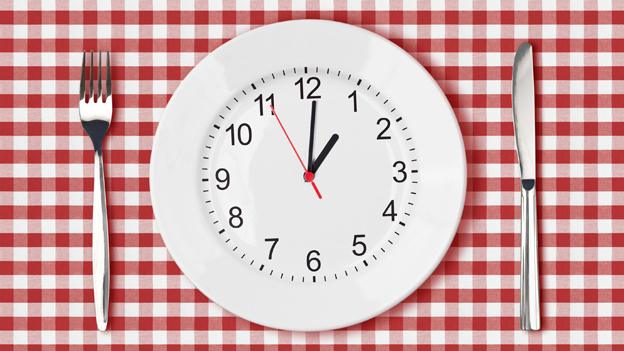Can skipping meals improve your life?
- Published
The story behind Soylent
As part of a series on the State of America, the BBC is profiling small businesses that have stories to tell about the way they work, and which say something about a wider national trend.
The average American spends 67 minutes a day eating or drinking, according to the US Bureau of Labor Statistics.
That's the equivalent of almost four work days a month and doesn't include the time spent thinking about meals or shopping for ingredients.
Just imagine how much more we could achieve if we did something else instead.
That's the thinking behind a small but growing market of beverages led by the Silicon Valley start-up Soylent, Finland's Ambronite and UK based Huel - companies aiming to liberate us from the tyranny of food while offering a healthy and sustainable alternative.
All three claim to offer a complete meal in a drink. You don't even have to worry about the washing up.
"We are living in a real period of overwork. We think the more we do the better we are," says Brigid Schulte, author of Overwhelmed and director of the Better Life Lab at New America, a non-partisan think tank in Washington.
"We place value on having a crammed calendar, rushing around trying to show how busy and important we are. It's no wonder people don't take time to eat any more."
Commercial meal replacements and food supplements have been around for decades and are frequently used by athletes and people trying to lose weight. But what makes these drinks different is the notion of saving time rather than calories.
Elon Musk, the 44-year-old multi-billionaire head of SpaceX and Tesla, spent one dollar a day on food when he was a struggling entrepreneur. Musk once remarked "if there was a way that I could not eat, so I could work more, I would not eat. I wish there was a way to get nutrients without sitting down for a meal".
Soylent and its competitors appear to offer the solution.
"Soylent in particular is very popular in the tech community," says Anthony Shop, head of Social Driver, a Washington-based digital marketing agency.
"Tech start-ups often have a philosophy that they're there to crush it for a few years and hopefully get a payout.

Elon Musk put little value into eating food while starting his companies
"That's the reason many start-ups provide food for employees. It's to keep them [in the office] so that they work even more. So some people are sucking down Soylent so they can spend an extra hour at their computer."
Shop says the drinks are entering the mainstream as part of a broader market for convenience food.
"One of the largest categories of products that are doing well is pre-packaged meals. Many people would rather pick up a pre-packaged Greek salad than stand at the salad bar with a hundred options and have to make their own salad. They have decision fatigue at the end of the day. This is a slice of that trend."
But other experts point to more disturbing trends in the way Americans eat - a "fear" of food that is driving consumers towards these kinds of products without assessing the benefits.
Many people categorise food as either "good" or "bad" for you - but are confused over which is which under a barrage of nutritional messages.
"A lot of people have become scared of food," says David Just, a behavioural economist at Cornell University.
"It's something that's affecting a large part of consumer demand. There are so many competing claims of what's healthy and not healthy and what sort of things we should be eating and the different properties and health outcomes from eating different food.
"This is one way people have simplified it - and taken it to extremes," Just says.
He says the confusion also led to a similar rise in popularity for gluten-free meals.
"Most of the people buying them now have no sensitivity to gluten, but they think it's going to help them in some way. There has started to be a group of people who are really phobic about food in general."
But what do people do with all the time saved by not eating meals? There are no formal studies but the experts are sceptical.
"Most people are doing this hoping it will make them more productive or free them up so they can engage in leisure activities in addition to being productive at work. But my guess is that what really happens is that fatigue takes over. There's only so much people can do," says Just.
"Anyone want to try the drink of the future?" ask the BBC's Michelle Fleury
"Right now I think the companies who produce these [products] are the ones really benefiting from them."
Even if people do work more, Brigid Schulte says the benefits are debatable.
"All the research shows, from neuroscience to economic data, that [more work] really does not produce the best results," she says. "You get to 50 hours a week and your productivity starts to decline. You get to 55 hours a week and it falls off a cliff."
She says most people would be more productive if they actually did less.
"There's really good evidence that shows we get more burned out, that our focus narrows, that we are not able to make decisions quickly or well, and that we are definitely losing creativity and innovation when we work so much and get so tired. So there are really huge costs to this busy, over worked culture."
And then there's the happiness factor to consider - conventional meals are not just good for the body, but good for the soul too.
"We have great research that human happiness is based on our connection with other people," says Schulte.
"And there is no better way to connect than sitting down, sitting across a table, and sharing a meal."
- Published5 July 2016

- Published24 June 2016

- Published16 November 2014
